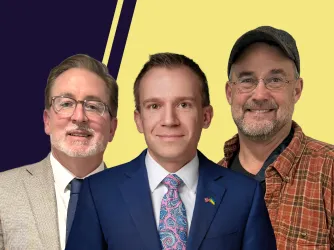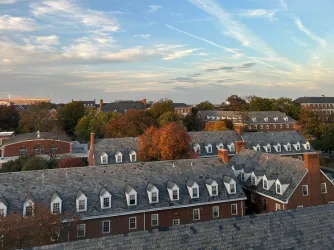Table of Contents
VICTORY: FIRE forces Berkeley to turn over records related to DEI hiring policy after two-year delay

David A Litman via. Shutterstock
Students pass through Sather Gate on the University of California, Berkeley, campus.
The University of California, Berkeley used diversity statements to weed out candidates for faculty positions, according to public records the university finally released more than two years after FIRE requested them.
Many universities now require or invite current or prospective faculty to demonstrate their commitment to diversity, equity, and inclusion — often through written statements that factor into hiring, research, evaluation, promotion, or tenure decisions.
As FIRE explained in a public statement last year, these diversity statement requirements can too easily function as ideological litmus tests and cast a pall of orthodoxy over campuses.
Berkeley is no exception. The university expects all new faculty hires to “be committed to advancing diversity, equity, inclusion, and belonging[.]” During the 2018-19 academic year, Berkeley’s life sciences departments launched an initiative to advance faculty diversity. As part of the initiative, applicants for full-time faculty positions were required to submit statements on their “contributions to diversity, equity and inclusion,” including information about their “understanding of these topics,” “record of activities to date,” and “specific plans and goals for advancing equity and inclusion.”
These statements informed the hiring committee’s first round of review: If applicants’ contributions to DEI did not meet a high standard, they were eliminated from consideration.
Access to public information serves an important role in protecting individual rights.
FIRE wanted to know more. So in March 2021, we filed a public records request seeking information related to how, exactly, the university was using and evaluating these diversity statements.
And then we waited. And waited. And waited.
Two years later, Berkeley still hadn’t handed over the records.
California’s Public Records Act requires that public agencies make records “promptly available.” Berkeley finally produced the records in May 2023 after FIRE sent a demand letter threatening legal action. It took Berkeley 795 days to comply with its duty under the act. Hardly prompt.
Access to public information serves an important role in protecting individual rights, and this is not the first time FIRE intervened to prevent a public university from playing fast and loose with public records laws. In 2019, FIRE sued the University of California, Los Angeles for failing to fulfill our request for records related to former U.S. Secretary of the Treasury Steven Mnuchin’s campus visit. A California court ruled that UCLA violated the public records act when it took 404 days to hand over 13 pages of information.
According to the rubric the hiring committee used to evaluate the statements, candidates who “discount the importance of diversity,” or who don’t feel personally responsible for advancing diversity, equity, and inclusion, received lower scores. As would anyone who “[d]efines diversity only in terms of different areas of study or different nationalities, but doesn’t discuss gender or ethnicity/race.” The rubric even penalizes candidates who “state that it’s better not to have outreach or affinity groups aimed at underrepresented individuals because it keeps them separate from everyone else, or will make them feel less valued.”
Unsurprisingly, all five of the life sciences departments’ new faculty hires endorsed Berkeley’s commitment to DEI initiatives.
Ultimately, the records will help inform FIRE’s ongoing advocacy against the use of required diversity statements in faculty hiring. Should more universities attempt to stonewall our requests for records, FIRE will be there to remind them that sunlight is the best disinfectant.
FIRE defends the rights of students and faculty members — no matter their views — at public and private universities and colleges in the United States. If you are a student or a faculty member facing investigation or punishment for your speech, submit your case to FIRE today. If you’re a faculty member at a public college or university, call the Faculty Legal Defense Fund 24-hour hotline at 254-500-FLDF (3533). If you’re a college journalist facing censorship or a media law question, call the Student Press Freedom Initiative 24-hour hotline at 717-734-SPFI (7734).
Recent Articles
Get the latest free speech news and analysis from FIRE.

Free speech in Trump 2.0
Podcast

The Federal Bureau of Investigation (of protected speech)

The paper was her lifeboat — UMD called it interference


